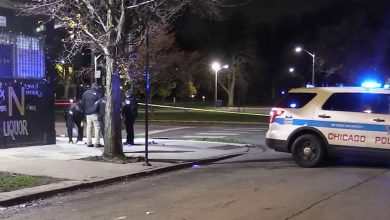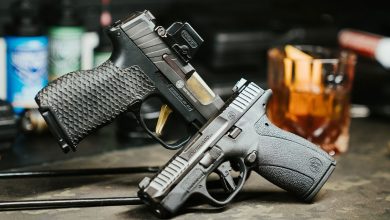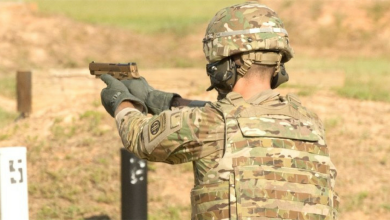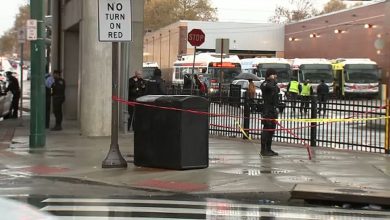Vance, Walz Tackle Issue of Gun Violence During VP Debate
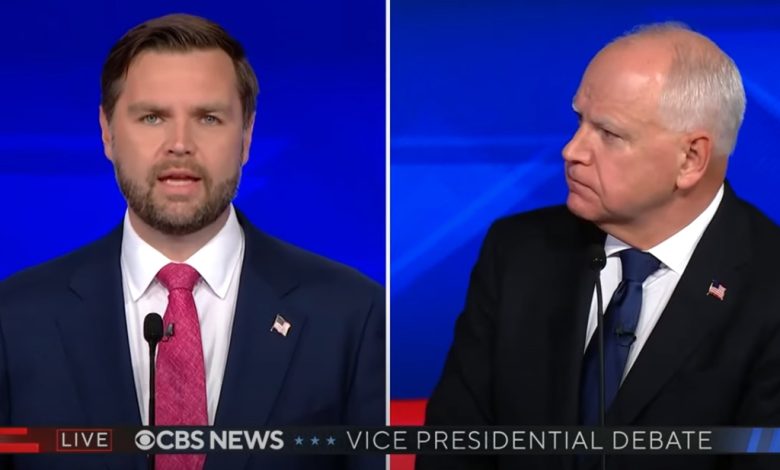
During Tuesday night’s vice-presidential debate, firearms and gun violence became a major topic of discussion, particularly concerning school shootings and gun control measures. JD Vance, the Republican candidate, and Minnesota Governor Tim Walz, representing the Democratic ticket, offered starkly contrasting views on how to address gun violence, with Vance emphasizing security and freedom and Walz advocating for policy changes that would restrict some firearms, but arguing it in no way infringe on Second Amendment rights.
Vance proposed that increased security measures in schools should be the priority.
“We have to make the doors lock better. We have to make the doors stronger. We’ve got to make the windows stronger, and, of course, we’ve got to increase school resource officers,” Vance stated during the debate, making it clear that any effort to “magically wave a wand and take guns out of the hands of bad guys” is not realistic. For Vance, the core issue is protecting children while preserving gun rights, and he implied that the focus should be on practical security enhancements rather than infringing on citizens’ rights to bear arms by enforcing rules that eliminate due process or restrict the rights of Americans to own certain types of firearms such as AR-15s. An assault weapons ban has been a cornerstone of the Harris and Walz’s agenda.
Vance also addressed the debate surrounding whether parents should be held accountable for crimes committed by their children with firearms, referencing the case of James and Jennifer Crumbley, the parents of the Oxford High School shooter in Michigan, who were both sentenced to prison terms for supplying the handgun used by their son to kill and wound people at the high school. He noted that parental responsibility could play a role but emphasized that each situation is different and requires a nuanced approach. Vance didn’t commit to a blanket solution but acknowledged that in some cases, holding parents responsible might be appropriate.
Meanwhile, Walz argued for a more comprehensive approach, pointing to other countries like Finland, which have high gun ownership but don’t experience school shootings on the scale of the United States. Walz’s suggestion was that “reasonable” policies could be implemented without infringing on the Second Amendment. However, Walz was unclear on what specific measures should be taken, vaguely suggesting that some firearms should be restricted, but without detailing which weapons he believed should be banned. Walz has formerly called AR-15 style rifles “assault weapons” and “weapons of war,” so his history is clear on his party’s intent without him specifying during the debate.
Walz’s rhetoric raised concerns among gun rights advocates, as he suggested that federal policies should intervene to remove certain weapons from circulation, even though he also continued, as he did again Tuesday night, to reassure gun owners by mentioning his own history as a hunter and gun owner. His statements are seen as the ultimate “Fudd” move.
A debate moment his opponents seized on was when Walz stumbled when he tried to make a point about his connection to gun violence victims, awkwardly stating that he had “become friends with school shooters,” a gaffe that drew heavy criticism. Though some dismissed it as a simple misstatement, it provided fodder for his opponents to question his credibility on the issue.
The New York Post shared that “even former President Donald Trump got in on the action, posting a Trump-Vance 2024 sign on his Truth Social with a slogan written underneath.
‘Not friends with school shooters,’ it read.”
Despite his efforts to appeal to gun owners, including his personal anecdotes about hunting, Walz’s messaging appeared inconsistent, and unlikely to change any minds in the gun community.
The debate laid bare the familiar divide between the Republican and Democratic approaches to gun control. Vance’s emphasis on school security over gun confiscation will resonate with the 2A crowd, who see such security measures as a reasonable, realistic and practical response. Meanwhile, Walz’s vague policy proposals and gaffe undermined his attempt to present himself as a defender of both gun rights and safety, but likely will only win over the support of those who are amenable to restrictions on gun rights and willing to abdicate their freedoms to the government. In the end, it’s unlikely either candidate did much to change any American’s mind on the subject.
A stark realization that was perhaps lost on some watching the debate is how Walz and the Democrats have embraced the headline-making fears of white America by making school shootings and assault weapons (still used in statistically few crimes) the centerpiece to their calls for firearms restrictions, while abandoning the larger cause of teen gun deaths in the inner cities, which disproportionately affects black families and accounts for many more “teen” deaths from gun violence than school shootings (as horrific as any senseless death is). In fact, it was the Republican vice-presidential nominee Vance, who spotlighted that very real concern and how enforcing existing laws to arrest those committing the crimes, not passing more restrictive laws that punish the law-abiding, will help everyone where gun violence is a concern.
During the discussion of gun violence, Walz mentioned his own 17-year-old son had witnessed a shooting at a community center to which Vance offered his concerns for his son having to see that saying, “It is awful.” Walz thanked him for his concern in a show of professional respect both candidates displayed through much of the debate, something that was largely absent during the Harris-Trump debate. This debate focused more on the issues and less on attacks on the candidate standing across from each other as well.
On Finland, Vance noted it is interesting how Walz pointed to that country as an example for gun ownership, noting that they do indeed own a fair number of guns in Finland, yet don’t have the violent crime rates the United States do. Vance also noted they don’t have the high rates of mental illness and anxiety experienced in this country either pointing to the fact that it will take a multi-pronged approach focusing on mental health and law enforcement to solve America’s gun violence concerns, not more restrictive policies.
Vance’s stance, rejecting the idea that the government can simply legislate its way out of gun violence, aligns with the belief that protecting the Second Amendment must remain paramount in any discussion of gun control.
Read the full article here

